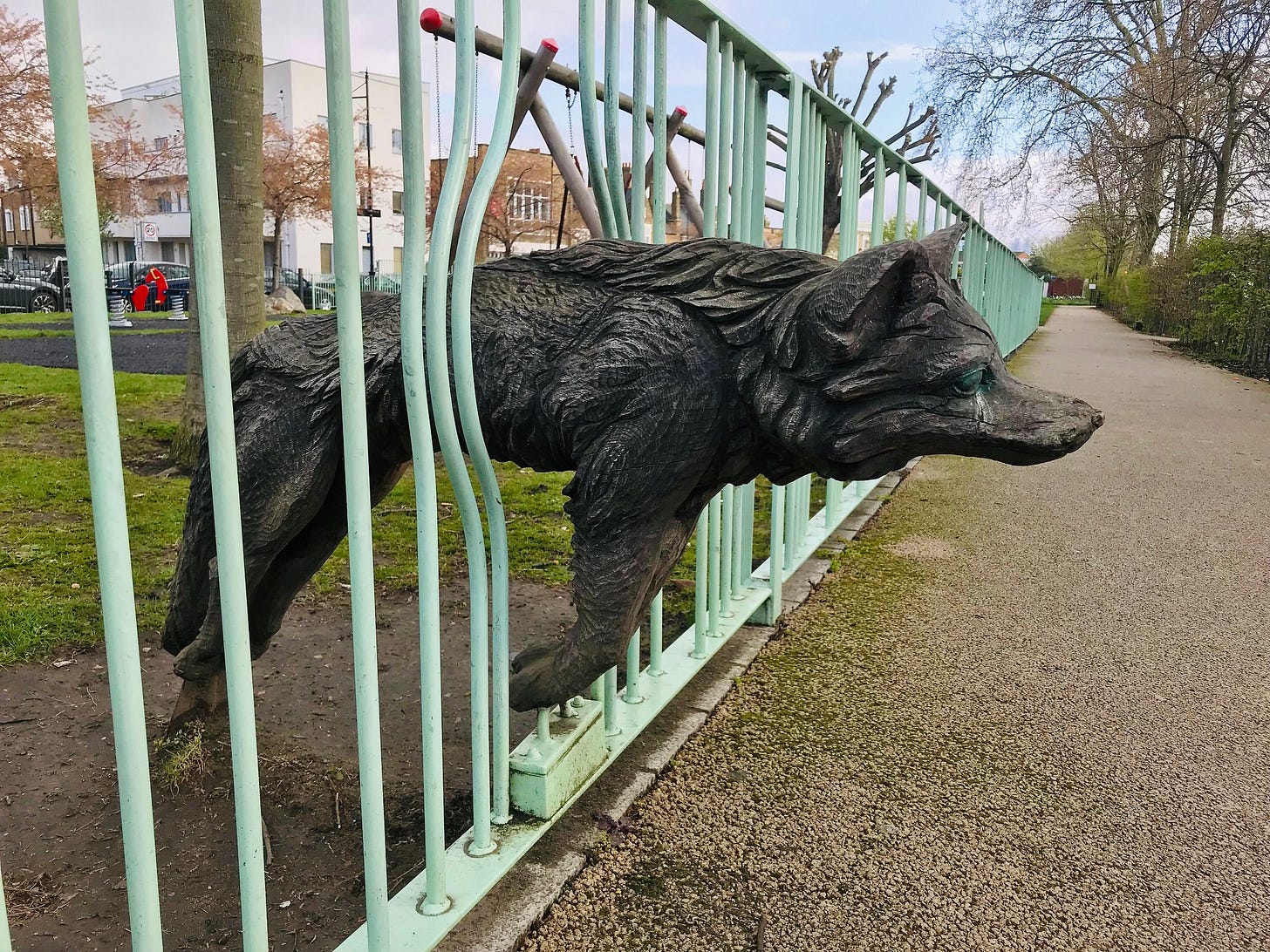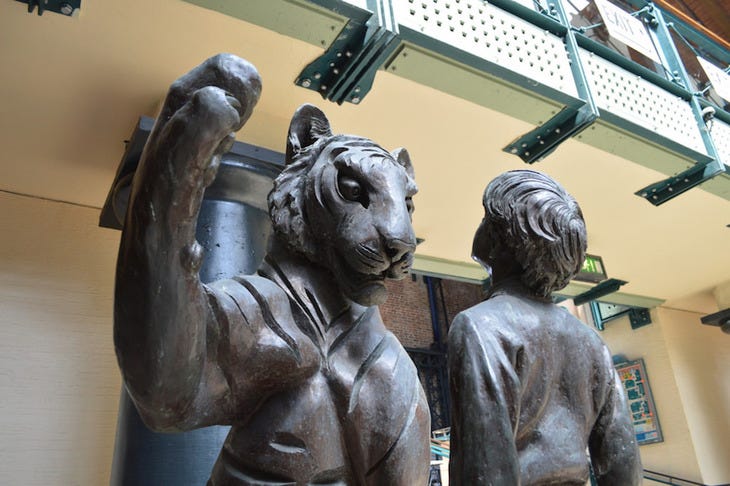Hi and welcome to your weekend newsletter…
This edition’s a handful of the great escapes effected by London’s animal population across the centuries. And there have been some truly great ones — heartwrenching in their determination, impressive in the level of chaos caused by their flights to freedom.1
Jamrach’s tiger
Charles Jamrach had a long and storied career as a trader of exotic animals in Victorian London — I assume because no specific law existed to say ‘if you keep losing your tigers maybe you shouldn’t be allowed to keep any’.
One of the more infamous escapes came in 1857, when a tiger broke free from a van full of animals near Tobacco Dock, en route to Jamrach’s premises. The tiger scooped up a nearby nine-year old boy called John Wade in his jaws, and took flight with him. Wade was retrieved eventually — alive, but traumatised to a degree that later saw him biting his family members in his sleep, waking up screaming ‘the tiger! The tiger!’, and his family, pretty understandably, suing Jamrach — by Jamrach himself, who tracked down the tiger, and beat it with a metal bar till it released the boy.
Jamrach’s description of the incident isn’t going to endear him to you, focusing mostly on 1/ himself as the hero of the near-tragedy, rather than, say, the root cause, and 2/ the temerity of John Wade’s family to bring legal proceedings against him for the attack.
His disappointment at having to hand over £50 in damages to the traumatised child didn’t put a dent in his passion for keeping and losing wild animals. A report in the East London Observer of 14 July 1877 also tells of the escape of one of his tigers from a train on the London and North-Western Railway, in the village of Weedon, near Northampton.
Closer to home, three lions once escaped from Jamrach's shop and made their way towards the adjacent parlour, where his wife Mary was minding her own business. Jamrach shouted a warning and she managed to close the door, before they turned on him. Eventually Jamrach managed to lock the lions in a second bedroom, where they stayed until their handler could come and collect them.






